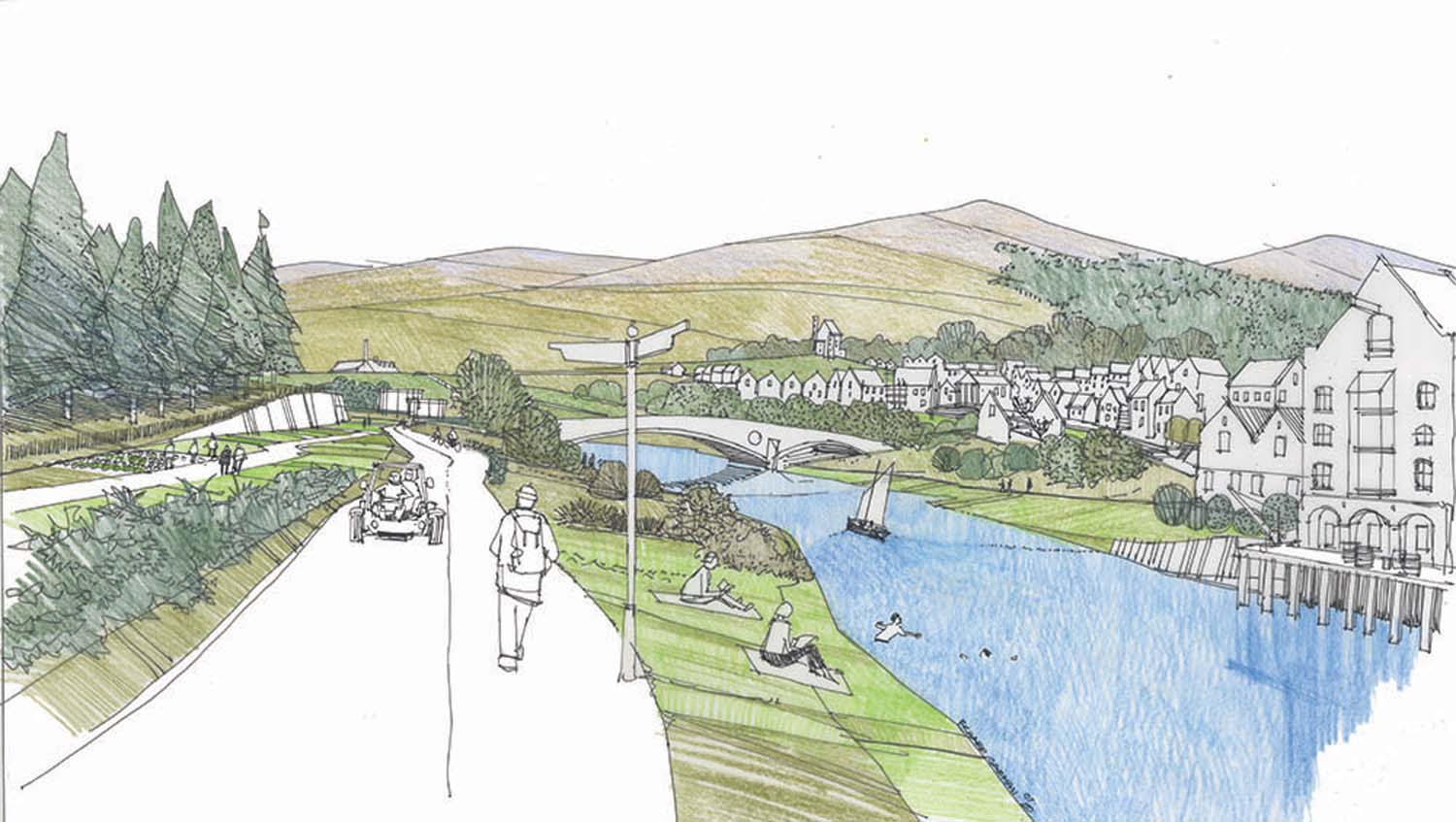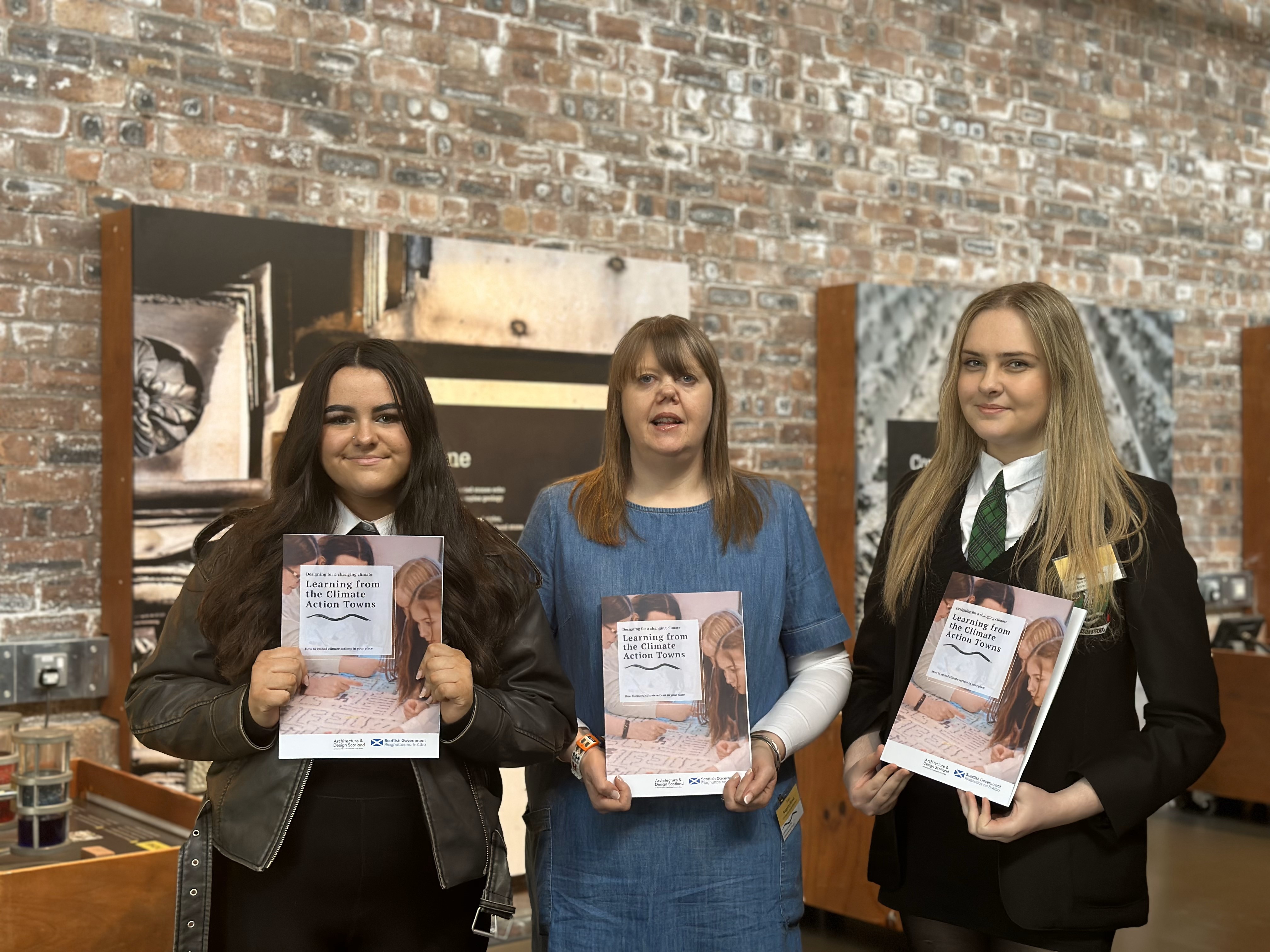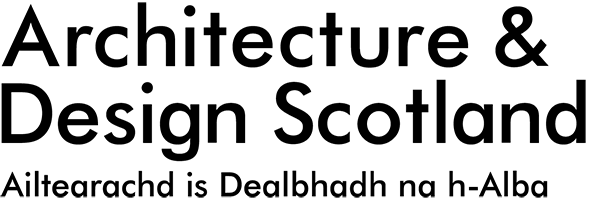Climate Action Towns
We have been working with local communities to support place-based climate action in a network of small Scottish towns.

Learning from the Climate Action Towns : launch of our report and resources
As we have come to the end of the three year Climate Action Towns project, we have collated our learnings into a report and a series of short videos, which can be found on a dedicated webpage via link below. Sitting alongside the report is a toolkit which provides a range of ideas and activities to support community-led climate action.
These resources are aimed at a range of audiences; some may be more relevant to you than others, but together they set out how we can identify the climate action initiatives relevant to your place.
Architecture and Design Scotland is committed to taking forward the learnings of Climate Action Towns by continuing to embed the lessons in all our work.
The information on this webpage continues to be a resource which shares the story of the project.
Towns take action to tackle the climate emergency
Our work across nine towns in Scotland has been to support the delivery of relevant, place appropriate climate actions. We have been doing this by working within each town to co-design the priorities of each place, identify opportunities, build capacity and support, and enable collaborations.
This 3-year project was supported by the Scottish Government, and was concluded in March 2024.
Find out more about our approach, why we focussed on small towns, why towns need to take place-based action to tackle the climate emergency, and how the project was established in the sections below.
Our approach
Our approach was developed through a process of working with each town, to establish the best routes and most relevant ways of taking climate action. Below are some key areas of work, and links to blogs which discuss the topic;
Understanding the local landscape, context and priorities of each place
- How Scotland's towns and villages can help tackle the climate emergency
- Five lessons learned about taking climate action at a local level
Building capacity and support within communities to take climate action
Opening up channels for cross-sector collaboration
- The Gathering (May 2023)
- The Climate Action Towns Gathering
- Winter Gathering
- Five lessons from our Climate Action Towns Gathering
Developing climate literacy and understanding
- Community resilience and the climate emergency
- Conversations in Stevenston about adapting to climate risk
Gathering examples of climate action in towns across Scotland
Why is our focus on small towns?
Half of Scotland's population lives in towns. By focussing our work within small towns we aimed to:
- bring small towns into the climate adaptation conversation
- challenge and explore what types of place-based action communities can take in small towns. This action is guided by the eight principles of a carbon conscious place.
- explore opportunities to support communities to deliver real change on the ground, in areas with historically limited action on climate change
- use this work to outline learning for inclusive climate action at a town scale. This learning can be applied in places across Scotland and beyond
We have been working with nine towns: Annan, Alness, Benarty communities (Ballingry, Crosshill, Lochore and Glencraig), Blackburn, Campbeltown, Drongran, Rankinston and Stair (DRS), Holytown, Invergordon and Stevenston.
Why do towns need to take action to tackle the climate emergency?
To protect Scotland from the impacts of climate change, we all need to work together to adapt the ways we live, work, play and move in our cities, towns and villages.
There is much work to be done, but if we do it together, well, and at pace, there are many co-benefits to be had.
Action on climate change presents us all with the opportunity to create a Scotland that is a healthier, fairer and more thriving place to live for everyone.
Our Climate Action Towns project is helping to realise these ambitions.
Establishing the Project
Where it all began
In 2019, we undertook a year of learning with four communities across Scotland into designing for a changing climate. This is an approach where practitioners use a whole-place approach to meet the net zero challenge. It was this year of learning that led to the Climate Action Towns project.
Read the report here
How we identified the towns?
We used the Scottish Government Urban Rural Classifications (2016) and census data (2011) to identify 156 small towns in Scotland across 28 local authorities.
Using indicators like flood risk, projected sea-level rise, Climate Challenge funding and the Scottish Index of Multiple Deprivation, we then shortlisted about 20 towns.
We then had conversations with national agencies and other stakeholders about recent or soon-to-begin climate-focussed projects. This got us to the seven towns.
Lessons from year one
Working towards a common objective with seven towns provides fertile ground for trialling various methods and taking a place-based approach to building a network of Climate Action Towns.
Through a year of listening and learning, our team has put together a summary that outlines their key findings and lessons learned from year one of the Climate Action Towns project.
Read the year one summary report
Reflections from year one
Hear about the first year of the Climate Action Towns project from those directly involved: community councillors, local organisations, and our team behind the scenes.
Read more here
Reflections from year two
A year of action and ongoing collaboration across the nine towns, whilst also continuing to develop an understanding of how different approaches in each place can enable climate action to happen.
Read more here
Inspiring projects: examples of Climate Action Projects
During year two we gathered examples of climate action projects across Scotland and created this resource.

Our blogs
We provide updates on our progress through a series of blogs. These highlight events or activities that have taken place, significant project updates or key themes emerging. You can find the most recent one here.
Header illustration credit: Richard Carman
